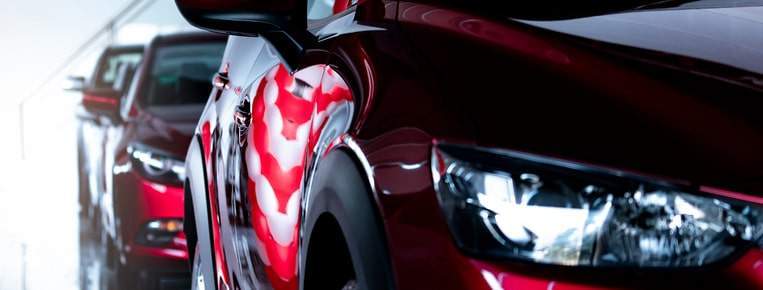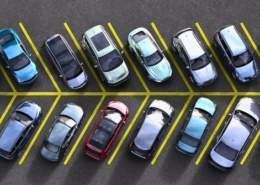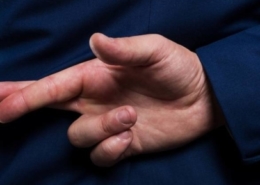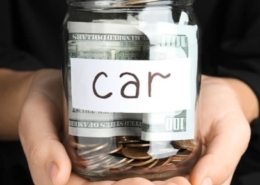Depreciation 101: Understanding How and Why Cars Lose Value
Explore the intricacies of car depreciation, from the initial drop in value off the lot to factors influencing its pace and ways to mitigate its impact.
The Sneaky World of Car Depreciation
Let’s be honest, folks—buying a brand-new car feels like buying a tub of ice cream. The first few bites (or drives) are euphoric. Then, halfway through, you start to wonder where it all went.
Like that tub of ice cream, your car’s value can melt away faster than you say, “I should’ve bought the economy size.”
But why? How can a shiny, tech-filled, aromatic wonder lose its financial charm so swiftly?
Welcome to Depreciation 101, where we dive into the art and science of car value. Buckle up!
Car Buying Tip: If you’re in the market for a new car, you may have noticed that finding one at a reasonable price can be difficult in today’s market. Many car buyers end up paying more than the suggested retail price. But don’t worry! You can still get a great deal on a new vehicle by requesting a free new car price quote to compare local dealer prices.
Table of Contents
What is Vehicle Depreciation, Anyway?
Car depreciation refers to the decrease in the value of a vehicle over time, primarily due to factors like wear and tear, age, mileage, and market demand. Essentially, it’s the rate at which a vehicle loses its value from its original purchase price.
After five years, vehicles can lose approximately half their value, although some makes and models retain their value better than others.
At its core, depreciation is the difference between what you paid for your car and what you’ll get when you sell or trade it. Think of it as the cost of all those joy rides, midnight snack runs, and family trips to the seaside.
The Instant Drop – Driving Off the Lot
Here’s a fun (albeit slightly depressing) fact: A new car can lose up to 20% of its value when you drive it off the dealership lot. Yes, even before you’ve had a chance to spill coffee on the seats or introduce it to your dog.
Why? Cars are a bit like smartphones. Everyone wants the latest model, and last year’s version suddenly seems outdated—even if it’s only a few days old. The allure of “brand-new” is a potent thing!
The Factors that Fuel the Fall
Let’s unravel the primary culprits behind car depreciation, from the inevitable effects of time and mileage, the scars of wear and tear, and the unpredictable whims of the market to the lasting impressions of brand reputation.
Time and Mileage
Cars age like bananas, not fine wine. The older your car gets and the more miles you put on it, the less it’s worth. A two-year-old car with 30,000 miles might fetch a decent price, but a five-year-old with 100,000 miles? Not so much.
Wear and Tear
This one’s a no-brainer. Dents, scratches, stains, and mysterious smells (we’re looking at you, forgotten gym bag) can drop your car’s value faster than a lead balloon.
Market Conditions
Market supply and demand, baby. If gas prices soar, that gas-guzzling SUV might not be in high demand. Conversely, your little hybrid might not fetch top dollar if there’s a zombie apocalypse and everyone’s after rugged off-roaders.
Brand Reputation
Some brands are known for their longevity and reliability (here’s looking at you, Japanese car manufacturers). Others might be known for their, well, not-so-stellar performance. Brand reputation can play a hefty role in depreciation.
The Real-world Impacts of Depreciation
The real-world impacts of car depreciation are twofold.
Financially, if you sell your car, you’ll likely receive less than its purchase price.
However, it can be beneficial if you’re buying a slightly used car, as you can get it for much less.
Psychologically, realizing that your car’s value is decreasing can be disheartening, akin to seeing a treat you cherish slowly go to waste before you can fully enjoy it.
Financial
From a financial perspective, depreciation can be a double-edged sword.
If you’re in the market to sell your car, you’ll get less than what you paid.
On the flip side, if you’re buying a slightly used vehicle, you can save a bundle!
Psychological
And then there’s the psychological impact. Knowing that your vehicle’s value diminishes can be a huge downer, especially when you’ve spent a significant amount on it.
It’s like watching your favorite ice cream melt away before you can savor it.
So, How Can I Slow the Slide?
Let’s be honest: you can’t stop depreciation (unless you’ve found the fountain of youth for cars, in which case, let’s chat). But you can slow it down.
- Take Care of Your Ride: A well-maintained car depreciates slower than one that’s neglected. Regular check-ups, oil changes, and keeping it clean can make a difference. Think of it as grooming a pet; the better you care for it, the happier and healthier it looks.
- Check the Odometer: Fewer miles can mean a higher resale value. So, maybe reconsider that cross-country road trip.
- Mind the Gadgets: While tech features can add initial value, they can quickly become outdated. Go for timeless features.
- Timing Your Purchase: Did you know that timing your vehicle purchase right can make a difference? Buying models about to be replaced by a new design can result in better deals and slower depreciation.
- Choosing Cars with a Slower Depreciation Rate: Research plays a crucial role. Some models and brands have a reputation for holding their value longer. So, being selective and informed can pay off in the long run.
Benefits of Understanding Car Depreciation
Understanding car depreciation offers three key benefits.
Firstly, it enables you to make wiser purchasing decisions, helping you decide between a new or slightly used car.
Secondly, this knowledge allows you to optimize the resale value of your vehicle by maintaining it, selling it at the right time, and targeting the ideal market.
Lastly, it promotes forward-thinking, encouraging you to strategize for future investments, much like anticipating moves in a chess game.
Smarter Purchasing Decisions
When you grasp the nuances of depreciation, you’re better positioned to make informed choices. Would you instead buy a brand new model or a slightly used one and save money?
Maximizing Resale Value
With proper knowledge, you can strategize to maximize the resale value of your car. This involves maintenance, the timing of the sale, and choosing the right market.
Creating a Long-Term Strategy
Instead of focusing on the present, understanding depreciation allows you to plan for the future. It’s like playing chess, thinking several moves ahead.
New vs. Used: The Depreciation Dilemma
When navigating the choppy waters of car buying, one of the most pivotal decisions is whether to go for a new or seasoned vehicle.
Let’s steer through the depreciation aspect of this choice:
Buying New: The Shiny Object
- Immediate Depreciation: Remember the “losing up to 20% when you drive off the lot” conundrum? It’s the major caveat of buying new. While getting the latest features and a full warranty, you’re also signing up for a steep initial drop in value.
- Predictable Performance: One major plus of buying new is that you know the car’s history – which is just a short story of you driving it off the lot. This means less unexpected wear and tear and a clearer idea of how the vehicle will age.
Opting for Used: The Wise Old Owl Approach
- Slower Depreciation: The first owner took the biggest hit regarding depreciation, which means the curve is gentler for you. A used car doesn’t lose its value as drastically as a new one, especially if it’s a model known for holding its value.
- More Car for Your Cash: Considering depreciation, you might snag a deal to get more features and luxury for your budget than buying new. This means heated seats and an upgraded sound system could be within reach!
- Know the Landscape: While a used car might come with an established depreciation trajectory, it’s crucial to understand its history. A well-maintained used vehicle can offer tremendous value, but one neglected can be a money pit.
Whether you indulge in a new car’s scent or play it savvy with a used gem, understanding depreciation is critical. It equips you to get the most out of your investment and enjoy the ride, whether it’s fresh from the factory or has a few tales to tell.
The Silver Lining – Depreciation Isn’t Always a Downer
Sure, the thought of your car’s value nosediving might seem gloomy.
But depreciation is your best friend if you’re in the market for a used vehicle.
A two-year-old car for 30% off its original price, with most of its life left? Now that’s a steal!
Car Depreciation FAQ’s
Why do new cars lose value so quickly?
When a new car leaves the dealership, it loses its “new” status, resulting in an immediate dip in market value.
How can I minimize the depreciation of my car?
Regular maintenance, informed purchasing decisions, and an understanding of the market can help minimize depreciation.
Are there cars that don’t depreciate as fast?
Yes, some models and brands are known for holding their value longer than others.
Is it better to buy a new or used car considering depreciation?
Buying a slightly used car can offer better value from a purely financial standpoint due to slower depreciation rates.
Does depreciation mean my car is of poor quality?
Not at all! Depreciation is a natural economic process and does not necessarily reflect the quality or condition of the vehicle.
Final Thoughts About Vehicle Depreciation
Car depreciation is an inevitable process, but armed with the proper knowledge, you can navigate smartly.
By understanding the why and how behind the decreasing value of new cars, you’re better equipped to make financially and psychologically beneficial decisions.
And hey, if all else fails, at least you’ll have some killer ice cream metaphors up your sleeve.
Happy driving and even happier car shopping!
















